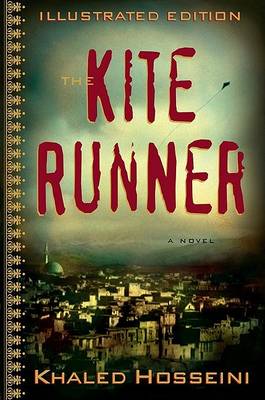
A Stunning Novel of Hope and Redemption
Taking us from Afghanistan in the final days of the monarchy to the present, The Kite Runner is the unforgettable and beautifully told story of the friendship between two boys growing up in Kabul. Raised in the same household and sharing the same wet nurse, Amir and Hassan grow up in different worlds: Amir is the son of a prominent and wealthy man, while Hassan, the son of Amir's father's servant, is a Hazara -- a shunned ethnic minority. Their intertwined lives, and their fates, reflect the eventual tragedy of the world around them. When Amir and his father flee the country for a new life in California, Amir thinks that he has escaped his past. And yet he cannot leave the memory of Hassan behind him.
The Kite Runner is a novel about friendship and betrayal, and about the price of loyalty. It is about the bonds between fathers and sons, and the power of fathers over sons -- their love, their sacrifices, and their lies. Written against a backdrop of history that has not been told in fiction before, The Kite Runner describes the rich culture and beauty of a land in the process of being destroyed. But through the devastation, Khaled Hosseini offers hope: through the novel's faith in the power of reading and storytelling, and in the possibilities he shows us for redemption.
Because I’m always in my habit of reading five things at a time, I closed The Kite Runner after the ending scene, and frowned and thought a bit, and laid it aside and picked up Out Stealing Horses and stumbled over this very passage:
Lars is Lars even though I saw him last when he was ten years old, and now he’s past sixty, and if this had been something in a novel it would have just been irritating. I have in fact done a lot of reading particularly during the last few years, but earlier too, by all means, and I have thought about what I’ve read, and that kind of coincidence seems far-fetched in fiction, in modern novels anyway, and I find it hard to accept. It may be all very well in Dickens, but when you read Dickens you’re reading a long ballad from a vanished world, where everything has to come together in the end like an equation, where the balance of what was once disturbed must be restored so that the gods can smile again. A consolation, maybe, or a protest against a world gone off the rails, but it is not like that any more, my world is not like that, and I have never gone along with those who believe our lives are governed by fate. They whine, they wash their hands and crave pity. I believe we shape our lives ourselves, at any rate I have shaped mine, for what it’s worth, and I take complete responsibility. But of all the places I might have moved to, I had to land up precisely here.
And in one accidental coincidental deft little paragraph, Petterson became my soulmate.
In this case, two stars are meant to say “I liked it well enough, okay, but too many damn contrivances.”
Reading updates
-
Started reading
-
1 April, 2009:
Finished reading
-
1 April, 2009:
Reviewed
